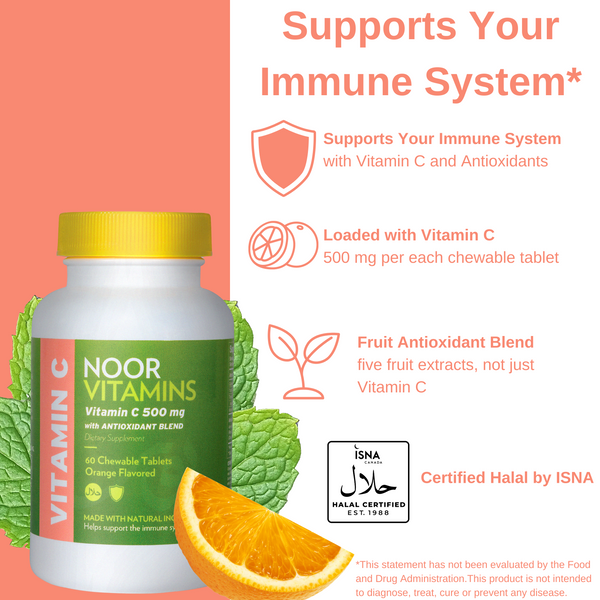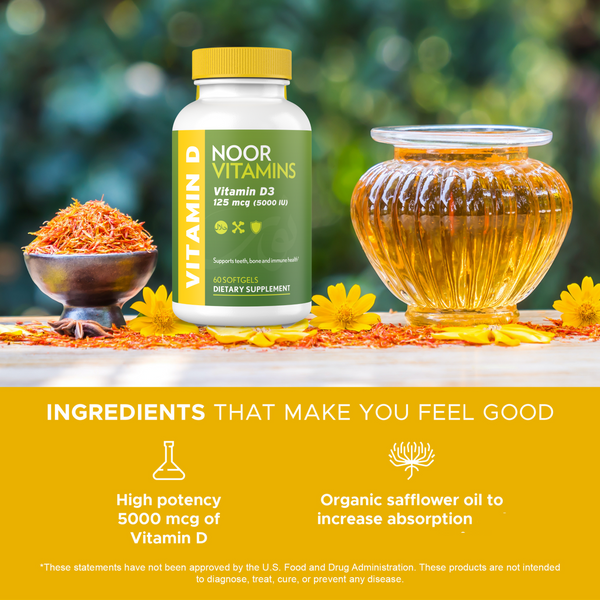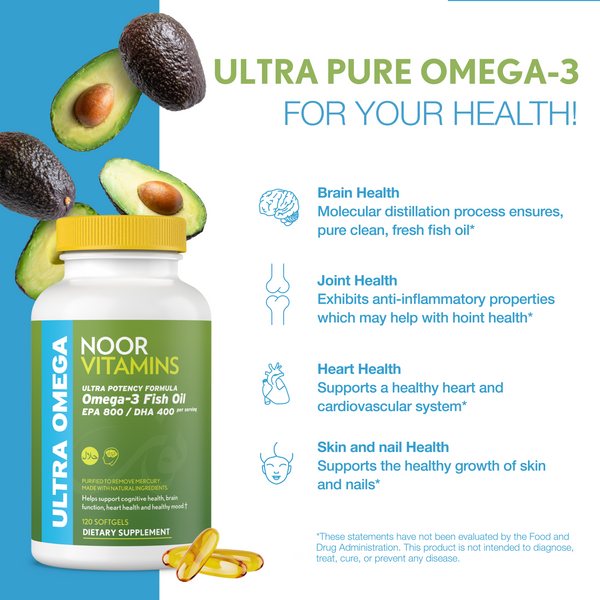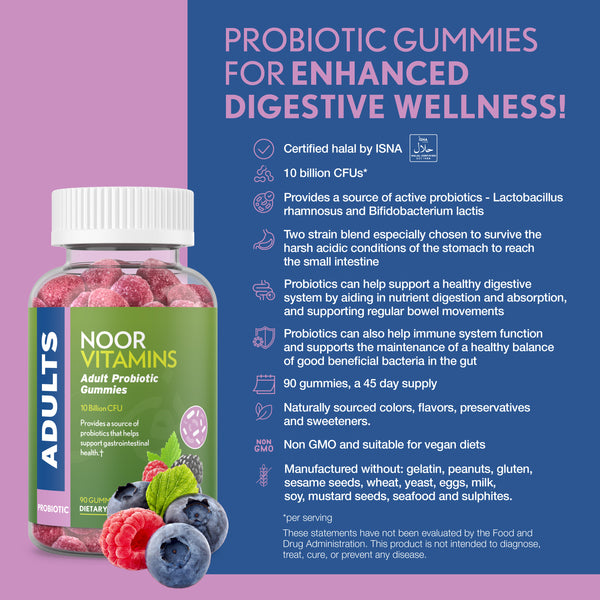Vitamins to Combat Your Seasonal Allergies
May 24, 2022
Sniffling, Sneezing, and Searching for Relief: The Allergy Dilemma
Ah, allergies. Whether it's the gentle bloom of spring or the dusty corners of an attic, allergies have a way of sneaking up on us, turning what should be pleasant days into marathon sessions of sneezing, itching, and eye-watering frustration. But before you reach for the tissue box or resign yourself to living in a bubble, there's a glimmer of hope on the horizon, brought to you by the natural world and encapsulated perfectly by Noor Vitamins.
Tis the season for sneezing, coughing, runny nose, itchy throat, and watery eyes. As the weather warms up, grass begins to grow and flowers start to blossom, allergies take a front seat in our lives. Allergies in all their forms have become much more common over the past few decades. This has a lot to do with the increase in pollution, a lack of nutrients in our food, and other environmental factors. Tree and grass pollen are the main culprits in the spring and summer seasons and although it’s beautiful outside, it can be an agonizing and unpleasant time for some.
It starts with the immune system overreacting to an allergen. This reaction triggers the release of histamine into the bloodstream which starts the domino effect of the notorious allergy symptoms. Allergy medication may provide temporary relief but comes with a slew of unfavorable side effects like drowsiness and fatigue. Nobody should have to suffer this summer because there are natural ways to deal with allergy symptoms without the side effects.
In this article, we will discuss some helpful vitamins to curb allergies this year!
Vitamin C
The ultimate antioxidant is also the ultimate vitamin to take for allergies. Vitamin C has many functions in the body, one in that it blocks histamine production through the stimulation of the body’s immune response. Vitamin C is effective for seasonal allergies in this way. Studies reveal that vitamin C therapy is effective for allergic rhinitis, also known as hay fever.
Its anti-inflammatory effects help diminish symptoms of a runny nose and swelling around the eyes. High-dose vitamin C through intravenous therapy alleviates allergy symptoms as well. In this long-term observational study, it was found that allergic diseases were associated with low levels of vitamin C. When given high doses of vitamin C through IV treatments, allergy symptoms subsided.

Vitamin C supplementation is key to warding off symptoms that come along with allergies. It is abundant in many whole foods like citrus fruits, strawberries, broccoli, tomatoes, and bell peppers. The recommended daily intake for a healthy adult is 80mg-90mg daily. The need for a higher dose is common as smoking, stress, and lack of a wholesome diet increase the requirement. There are no toxicity effects of vitamin C but loose stool is usually an indicator of maximum absorption levels being obtained for the day. It is important to supplement with vitamin C every day because it is a water-soluble vitamin, which means the body will not store excess for later use.
Signs of deficiency include rough and bumpy skin, easy bruising, slow wound healing, swollen joints, weak bones, and poor immune function.
Vitamin D
Vitamin D is the sunshine vitamin. We get it for free and in abundance on a beautiful day when exposed to the Sun. It's unfortunate though, that the Sun isn't always shining and sunscreen (although needed) blocks all forms of Sun rays, which inhibits vitamin D absorption. Absorbing sunlight is essential for the body to produce its own vitamin D. This fat-soluble vitamin is used to maintain bone health, immune function, and also helps the body absorb calcium and phosphorus.
Studies have found a link between the importance of vitamin D and the immune system. Vitamin D activates certain regulatory immune system cells which suppress the release of chemicals that trigger allergic symptoms. Another study was done on children who suffered from grass pollen allergies and the effects of vitamin D supplementation. They were given 1000 IU of vitamin D daily and it was concluded that their allergy symptoms significantly decreased in comparison to the placebo.

Vitamin D is a fat-soluble vitamin, which means that it is stored in the body, unlike a water-soluble vitamin that is excreted through urine. Vitamin D intake varies and is dependent upon the individual and several other factors, including sun exposure, skin color, and diet.
The most abundant sources of vitamin D are in meat and dairy products, cod liver oil, mushrooms, and fatty fish. Other sources include fortified orange juice and breakfast cereals. Taking Vitamin D for allergies is the fastest and easiest way to eliminate allergic symptoms, especially when deficiency is present.
Omega-3 Fatty Acids: Nature's Anti-Inflammatory
Found in fish oil and flaxseeds, Omega-3 fatty acids are celebrated for their anti-inflammatory properties. For allergy sufferers, this can mean less swelling and redness in reaction to allergens. Noor Vitamins' Omega-3 supplements provide a pure, potent dose of these fatty acids, supporting not just allergy relief but overall health.

Probiotics: Balancing the Gut for Better Health
The gut is often where health and disease begin, and allergies are no exception. Probiotics help maintain a healthy balance of gut flora, which in turn supports a healthy immune system. A robust immune system is less likely to overreact to allergens, which is why incorporating Noor Vitamins' Probiotic gummy supplements into your routine could help keep allergies at bay.

Defeat Your Seasonal Allergies with Natural Vitamins!
Seasonal allergies are never fun. There are so many allergy medications on the market that provide temporary or no relief and a lot come with side effects of drowsiness and fatigue that are just not conducive to our day. Substituting over-the-counter medications with natural supplementation may prove a more beneficial route for some.
Vitamin C and vitamin D are key vitamins to take for allergies. They both function to assist with immune function, inflammation, and most importantly, inhibit the build-up of histamine in the bloodstream which is responsible for triggering the allergic response.
If you suffer from seasonal allergies, don’t let that get you down. You have the right to enjoy the beauty of the summer months like the rest of us! Just ensure you are prepared by supplementing with the right vitamins, drinking lots of fluids, implementing a diet rich in nourishing foods, and avoiding things like gardening and lawn mowing which may stir up allergens.
The Takeaway: A Natural Path to Allergy Relief
Dealing with allergies doesn't have to be a life sentence of discomfort and avoidance. With the right support, namely from high-quality supplements like those offered by Noor Vitamins, relief is not just possible; it's within reach. Embrace the natural solutions at your disposal, and take the first step towards a healthier, happier you.
Remember, while supplements can offer significant benefits, they're most effective as part of a holistic approach to health. Always consult with a healthcare provider before starting any new supplement, especially if you have underlying health conditions or are taking other medications.
Ready to breathe easier and enjoy life without the constant interruption of allergy symptoms? Explore Noor Vitamins' range of supplements today, and discover your ally in allergy relief. Your nose (and your eyes, and your throat) will thank you.
FAQs:
Q: Can supplements cure my allergies?
A: While supplements can support the body's immune response and help alleviate symptoms, they are not a cure for allergies. They work best when used in conjunction with a healthy lifestyle and, if necessary, under the guidance of a healthcare provider.
Q: How long does it take to notice a difference?
A: The effects of supplements can vary from person to person. Some may notice improvements in a few weeks, while for others, it may take longer. Consistency and patience are key.
Q: Are there any side effects to taking allergy support supplements?
A: Most people tolerate these supplements well, but as with any dietary supplement, there can be side effects. It's important to follow the recommended dosages and consult with a healthcare provider, especially if you have existing health conditions or concerns.

